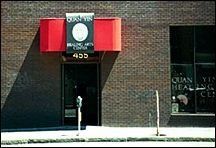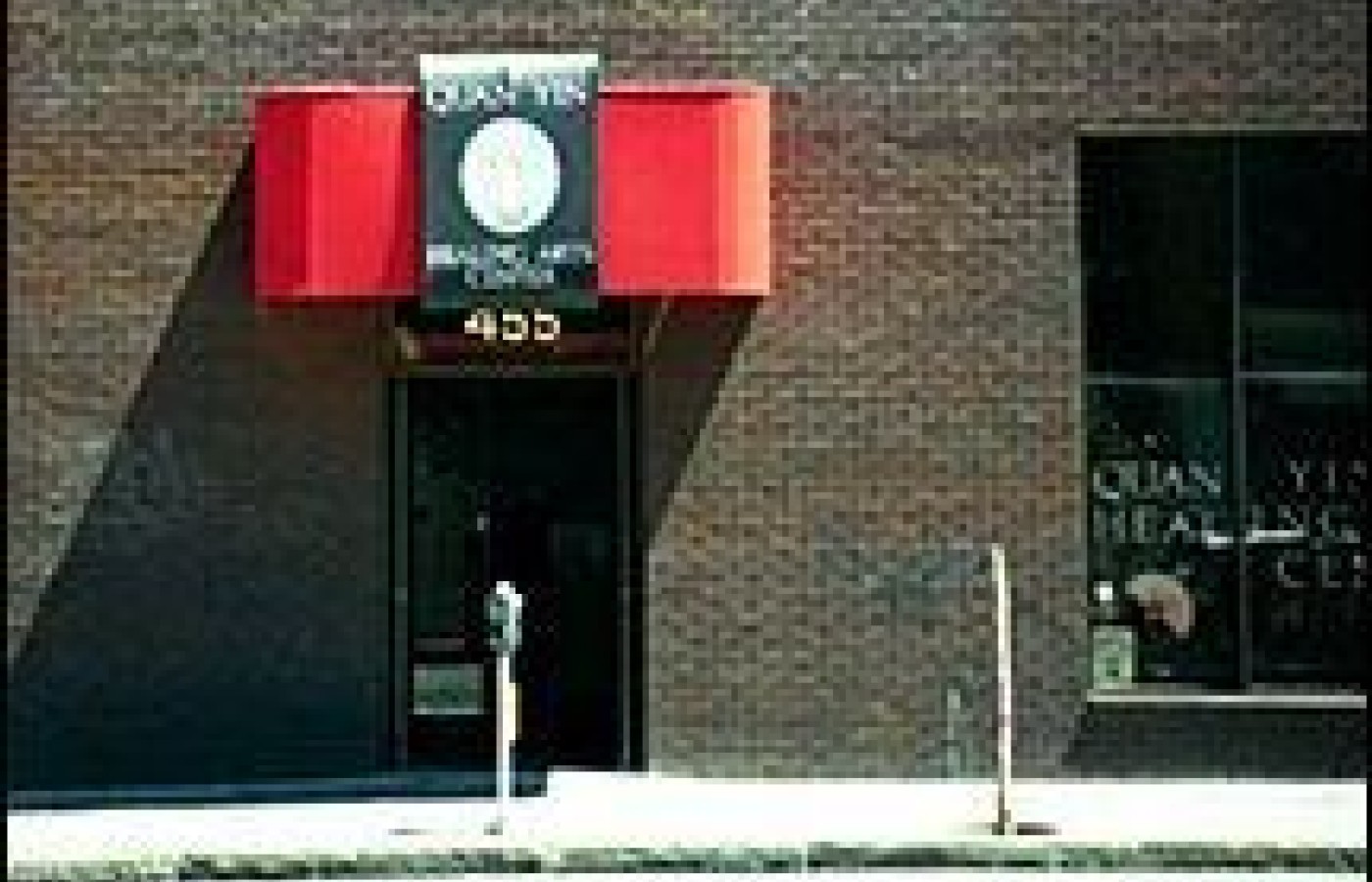The most important relationship I seek to nurture in the treatment room is the one a patient has with their own body. We live in a culture that teaches us to override pain, defer to outside authority, and push through discomfort. Patients often arrive hoping I can “fix” them, but the truth is, we can’t do the work for them. We can offer guidance, insight and support, but healing requires their full participation.
The Quan Yin Healing Arts Center: Celebrating 20 Years of Service
Quan Yin is the bodhisattva of compassion and mercy. The Quan Yin Healing Arts Center (QYHAC) was named fortuitously. We searched for a name and came up with several that were suitable, but none were quite right. One day, I received a bookmark in the mail from a friend who practices as a psychic. It came with a card on which she wrote: "I do not know why I am sending this bookmark to you at this moment, however it seems the right thing to do." I turned the bookmark over and read the story of the bodhisattva Quan Yin. The clinic was named then and there.
In 1984, the center was established to serve the San Francisco Bay Area community, particularly persons underserved in the San Francisco Mission District. Chinese medicine practitioners (along with Western practitioners) frequently denied treatment to people with HIV/AIDS. We opened our arms.
Today, Quan Yin Healing Arts Center is an internationally respected model of a community-based complementary medicine center for people with HIV/AIDS and hepatitis, and the traditionally underserved. It serves as a beacon of compassion. Chinese medicine practitioners can receive first-class education in HIV/AIDS, hepatitis C virus (HCV), and other chronic life-threatening medical issues. Along with the central clinic in the Mission District, QYHAC's satellite clinics provide acupuncture to clients at HIV service agencies and programs serving the homeless.
History and Mission

In November 1984, Quan Yin Acupuncture and Herb Center was established with the belief that there was a need for Asian medicine in Western society, and that it could be complementary to Western medicine. The Quan Yin Center was the first full-service Chinese medicine center to provide HIV-positive people with acupuncture, an herb pharmacy and classes. On opening day, one-third of clients were HIV-positive.
A key mission is to provide quality Chinese medicine to those in need, regardless of social status or ability to pay. While doors are open to all, QYHAC is primarily recognized for serving "hard-to-reach" populations: multiple-diagnosed individuals, transgender people, formerly incarcerated people, people of color, and the homeless. Clients are often indigent, are HIV-positive, are substance users, and have hepatitis and mental health issues. Many habitually lack access to medical care.
For 20 years, Quan Yin's model of care has been refined based on the response of thousands of clients from all cultural, economic and social strata. Since its inception, QYHAC has advanced awareness of Chinese medicine as a form of primary care as well as complementary care, especially for people living with HIV/AIDS and hepatitis. QYHAC provides acupuncture, Chinese herbs, yoga, qigong/tai chi and meditation to hundreds each month. QYHAC is well-known within the HIV and HCV communities, the Chinese medicine world, and Western medicine providers for quality, cost-effectiveness and responsiveness to advances made in Western treatment. QYHAC promotes harm reduction, the social model that encourages people to make life-affirming changes that lead to health seeking behaviors.
QYHAC Timeline
- From 1985 to 1990, the non-profit San Francisco AIDS Alternative Healing Project's Comprehensive Program for HIV-positive People (SFAAHP) provided healing programs. SFAAHP brought acupuncture, herbs, psychotherapy, group support, nutritional counseling, education, and case management under one roof at reasonable cost. Later in 1985, QYHAC was created and encompassed SFAAHP. By 1990, SFAAHP's job was complete when services had become more widely accessible.
- In 1987, QYHAC and the Institute for Traditional Medicine joined in an innovative program to test herbal formulas in HIV-positive people and chronic immune dysfunction syndrome (CFIDS). By 1998, in collaboration with the Oriental Healing Arts Institute, QYHAC developed HIV Chinese medicine strategies. With ITM's support, QYHAC initiated the Quan Yin Herbal Program for HIV-positive People. Subhuti Dharmananda and I tested Chinese herbal HIV protocols.
- In April 1989, Dr. Wei Bei Hai, senior professor from the Beijing College of TCM, proposed the spleen/stomach theory in HIV/AIDS at a Quan Yin symposium. This helped formulate long-term HIV/AIDS treatment.
- In October 1989, the Loma Prieta earthquake hit San Francisco. Scheduled clients all showed up after the earthquake struck. For various reasons, client level dropped in half, from 400 clients per week to 200 clients per week after the earthquake.
- In 1989, HCV was identified as a new virus. The Quan Yin Hepatitis C Program was begun in response.
- In April 1990, the Quan Yin Acupuncture and Herb Center closed due to financial difficulties, having never recovered from the earthquake's effects. A benefactor gave $1000 to the Quan Yin Herbal Program for HIV-positive People to keep the program open.
- The Quan Yin Herbal Program was completed in 1990. Over 600 HIV-positive clients enrolledbetween 1988 and 1990. The Immune Enhancement Project (IEP) spun off from QYHAC, establishing a Castro District clinic.
- Quan Yin's professional HIV certification program's first state-of-the-art East/West education began in September 1990. Between 1990 and 1995, 260 practitioners became HIV-certified worldwide.
- In 1991, Quan Yin Herbal Program results were presented at the Beijing International Symposium on Viral Hepatitis.
- From 1991 to 1994, five herbal formulas were designed by myself to treat immune deficiencies, based on observation of Quan Yin clients.
- In 1992-1993, the first clinical herbal study in HIV-positive people - using Quan Yin formulas - was sponsored by the University of California, San Francisco at San Francisco General Hospital.
- After much HIV/AIDS community effort, in 1992, the first San Francisco Chinese medicine clinics were funded through the Ryan White CARE Act.
- In 1993, the Berlin International AIDS Symposium included breakthrough official presentations on HIV, Chinese medicine and alternative therapies.
- From 1993 to 1996, Howard Moffet, former QYHAC executive director, organized four international HIV/AIDS and Chinese medicine conferences.
- From 1994 to 1997, seven HIV/Chinese medicine studies were government-funded or privately funded; five involved QYHAC.
- In 1996, QYHAC received CARE funds. Several Ryan White acupuncture programs were now being funded in the U.S.
- In 1998, QYHAC provided the "official" acupuncture clinic at the Geneva International AIDS Symposium. Carla Wilson and I treated hundreds of people. In 2000, Carla Wilson, QYHAC's executive director, ran the acupuncture clinic at both the Durban International AIDS Symposium and the Satellite Women's Conference.
- In 2001, the San Francisco Treatment on Demand Council named Carla Wilson to its ranks.
- In 2002, QYHAC hosted the first hepatitis C professional certification program for licensed acupuncturists. By June 2004, 130 practitioners worldwide were certified in comprehensive East/West HCV treatment.
- Thee first subsidized HCV treatment program was funded in 2003 by the California Endowment. In 2004, the endowment funded HCV education at QYHAC.
- In early 2004, the San Francisco Department of Public Health (SFDPH) awarded QYHAC a new Ryan White CARE contract. It was rescinded one day later, when the City of San Francisco defunded all complementary and alternative medicine programs. QYHAC's executive director joined with community leaders, the SFDPH and acupuncture clients to demand financing for defunded HIV services from San Francisco's general fund. This campaign was successful. Quan Yin, along with IEP, was funded for another year of direct care to the underserved HIV-positive people of San Francisco.
For more information on the Quan Yin Healing Arts Center, visit www.quanyinhealingarts.com, call ( 415) 861-4964, or send an e-mail to qyhacinfo@aol.com.



